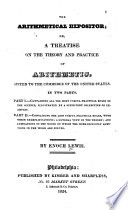 | Enoch Lewis - Arithmetic - 1824 - 92 pages
...from, the given extreme, according as the less or greater is given, will produce the required extreme. Half the sum of the extremes multiplied by the number of terms, will produce the sum of the series. EXAMPLES. 1. The least term of an equidifFerent series is 1, the... | |
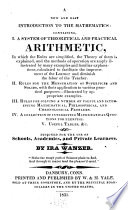 | Ira Wanzer - Arithmetic - 1831 - 408 pages
...the common difference by the number of terms less 1. THEOREM 4. — The sum of all the terms in any arithmetical progression, is equal to half the sum of the extremes multiplied by the number of terms ; or the sum of the extremes multiplied by the number of the terms, gives double the sum of the series.... | |
 | Silas Totten - Algebra - 1836 - 332 pages
...extremes (80), we shall have in a progression of n terms, and dividing by 2, Hence we conclude, that the sum of the terms of an arithmetical progression is equal to the sum of the extremes, multiplied by the number of terms, and divided by 2 (Arith. 64). (84.) From... | |
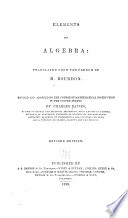 | Algebra - 1838 - 372 pages
...a+l, b-\-k, c+i .... are equal to each other, and their number equal to n, 2S=(a+l)n, or S= That is, the sum of the terms of an arithmetical progression is equal to half the sum of the two extremes multiplied by the number of terms. 1. The extremes are 2 and 16, and the number of terms... | |
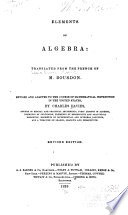 | Bourdon (M., Louis Pierre Marie) - Algebra - 1839 - 368 pages
...all the parts a-\-l, b+k, c+z .... are equal to each other, and their number equal to n, That is, (he sum of the terms of an arithmetical progression is equal to half the sum of the two extremes multiplied by the number of terms. 1. The extremes are 2 and 16, and the number of terms... | |
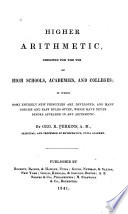 | George Roberts Perkins - Arithmetic - 1841 - 274 pages
...many years is the common difference of their ages 4 CASE VI. By case II. we know that the sum of all the terms of an arithmetical progression is equal to half the sum of the extremes multiplied into the number of terras; therefore the number of terms is equal to the sum of all the terms divided... | |
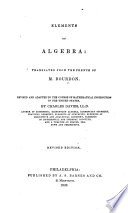 | Charles Davies - Algebra - 1842 - 368 pages
...a-\-l, b+k, c+i .... are equal to each other, and their number equal to n, 2S=(a+l)n, or S= That is, the sum of the terms of an arithmetical progression is equal to half the sum of the two extremes multiplied by the number of terms. 1. The extremes are 2 and 16, and the number of terms... | |
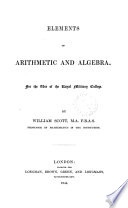 | William Scott - Algebra - 1844 - 568 pages
...of the progression •+- a . b . c . d ..... i . k . I is, therefore, Therefore S= - - 2. In words, the sum of the terms of an arithmetical progression is equal to half the sum of the extreme terms multiplied by the number of terms. 186. Five quantities, a, ?, I, n, S, enter into the... | |
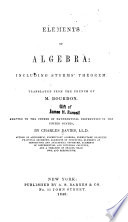 | Charles Davies - Algebra - 1845 - 382 pages
...n, by which we designate the number of terms in each series, we have 2S = (a + I) n, or S= That is, the sum of the terms of an arithmetical progression, is equal to half the sum of the two extremes multiplied by the number of terms. * EXAMPLES. 1. The extremes are 2 and 16, and the number... | |
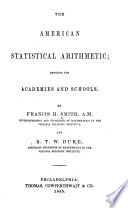 | Francis Henney Smith - Arithmetic - 1845 - 710 pages
...there are terms, that is, eight times ; and hence, in an arithmetical progression, the sum of its terms is equal to half the sum of the extremes, multiplied by the number of terms. EXAMPLES. 1. Find the sum of the terms of an arithmetical series whose first term is 3, last term 19,... | |
| |